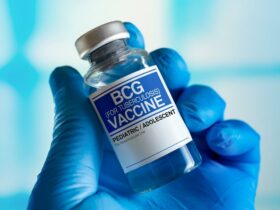United States: The Vaccine against Chlamydia has shown reactions in the immune system by virtue of its early trial involving many people, bringing hopes of a future in terms of disease control for this kind of sexually transmitted infection (STIs).
In the US, Chlamydia is probably the most commonly seen STD, rating the highest with the incidence rate among all the other bacterial STDs. Currently, only the Centers for Disease Control and Prevention (CDC) reports that no vaccine has been developed yet.
More about Chlamydia disease
The results of the study were published in the journal in Lancet Infectious Diseases on April 11. Subsequently it showed that the antibody response was just like the cell-based answer to the virus and that the vaccination is safe.
Dr. Jay Varma, an assistant professor of population health sciences at Weill Cornell Medicine in New York City, notes that Chlamydia is frequently the major contributing factor to infertility among women in a similar scenario discussed by US News. In addition, undiagnosed or untreated endometriosis can generate a pelvic inflammatory disease, which raises a complication in the women’s pregnancy.
Additionally, experts have declared that this bacteria can control eye health through eye infection. Currently, this eye infection causes vision problems in 1.9 million people globally.
About the trial of the vaccine

In the new Phase 1 trial, which occurred between 2020 and 2022, samples crosswise of men and women were used; there was a balanced number of healthy people with a mean age of 26.
Different doses of the vaccine were tested, and a two-way randomized trial in which the subject either received the vaccine or a placebo on three separate days was performed over a period of nearly four months.
Dr. Hilary Reno, a professor of medicine at Washington University School of Medicine in St. Louis and medical director of the St. Louis County Sexual Health Clinic, said, “Does it confer the ability to hold off infection with chlamydia?” and, “If you do have an infection, does it mean you’re more likely to have an asymptomatic infection?”
She added, “We don’t know that, and that’s what the next phase of studies would be,” as US News reported.
Moreover, the researchers are considering launching a larger level phase 2 trial, which would better measure the vaccine effectiveness.
The study author, Jes Dietrich, a senior scientist at Statens Serum Institut in Denmark, said that hopefully, one day, the vaccine will be able to restrain both infections in the reproductive systems and in the eyes.
Dietrich said, “I was very pleasantly surprised because it’s really difficult to induce immunity in the eye,” as US News reported.












Leave a Reply